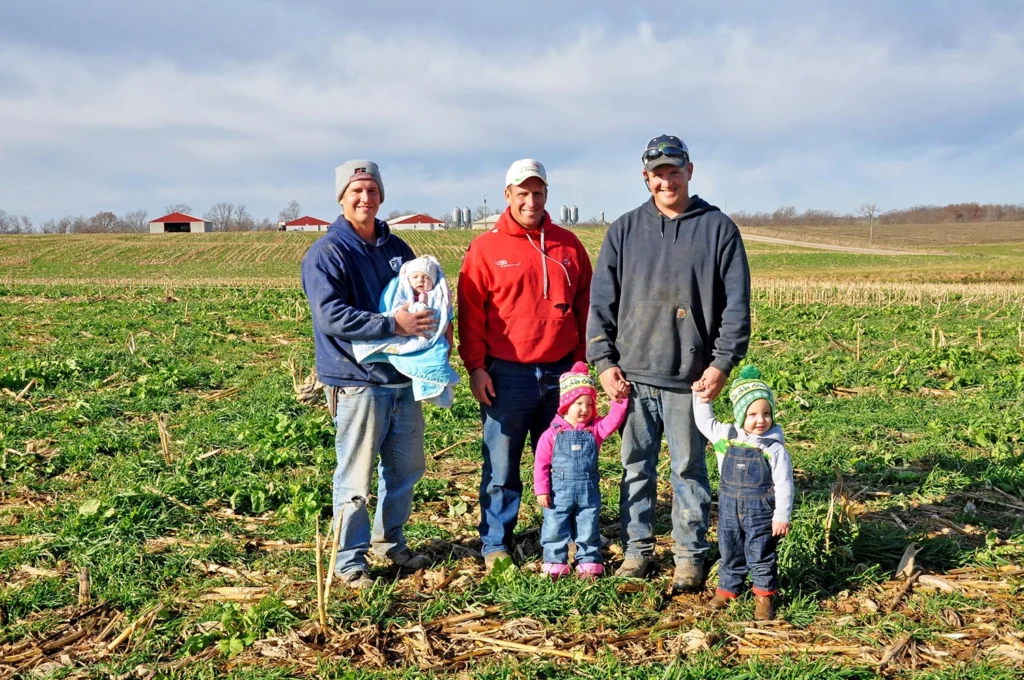How science, data, and location intelligence support sustainable U.S. agriculture
Meet the Prevo brothers, fifth-generation farmers managing their family’s century farm in Iowa.
These soybean farmers are bucking the trend in conventional farming to invest in soil health—and they’re seeing record yields doing it.

What’s the greatest challenge facing farmers in the Midwest?
Many would say the erratic weather. In 2019, farmers in the Corn Belt experienced some of the rainiest springs on record, leaving many fields unplanted because of flooding and excess moisture. According to the USDA, farmers affected by flooding planted only 71 percent of their planned soybean crop in May. And by mid-June, Iowa temperatures generally become too high for successful planting. Nationwide, nearly 20 million acres were prevented from planting.
Planning for an uncertain future
Despite the challenges, the Prevo brothers are managing their land and business to support their next generation of farmers, and many generations to come.
If you drive past Prevo Farm in late summer, rather than an empty, harvested field, you’ll see a mixture of plants including sorghum, millet, turnips, radishes, buckwheat, sunflowers, and sun hemp.
That’s because the Prevo family in 2011 changed their crop management system from conventional tillage to no-till farming with cover crops. With the next generation of farmers in mind, the family aimed to reduce runoff and improve water infiltration in their fields.
Although they expected an initial decrease in crop yields, Kevin Prevo says it was just the opposite.
“I always heard at least five years yield drag on no-till, but we never saw that. We actually had our best ever average yields in 2014, until we topped it in 2016 for both corn and soybeans.”
The Prevo family also runs livestock on their farm and now lets the cattle graze the cover crops from late summer into the winter, which reduces feed costs. In fact, soil health management practices offer a wide range of benefits for farmers like the Prevos.

